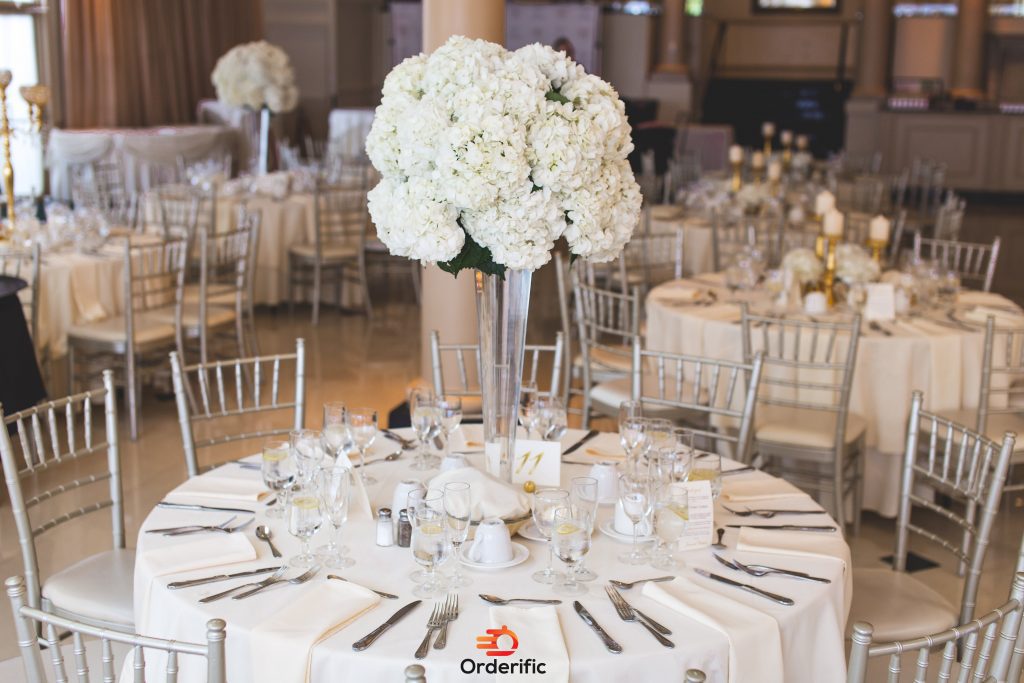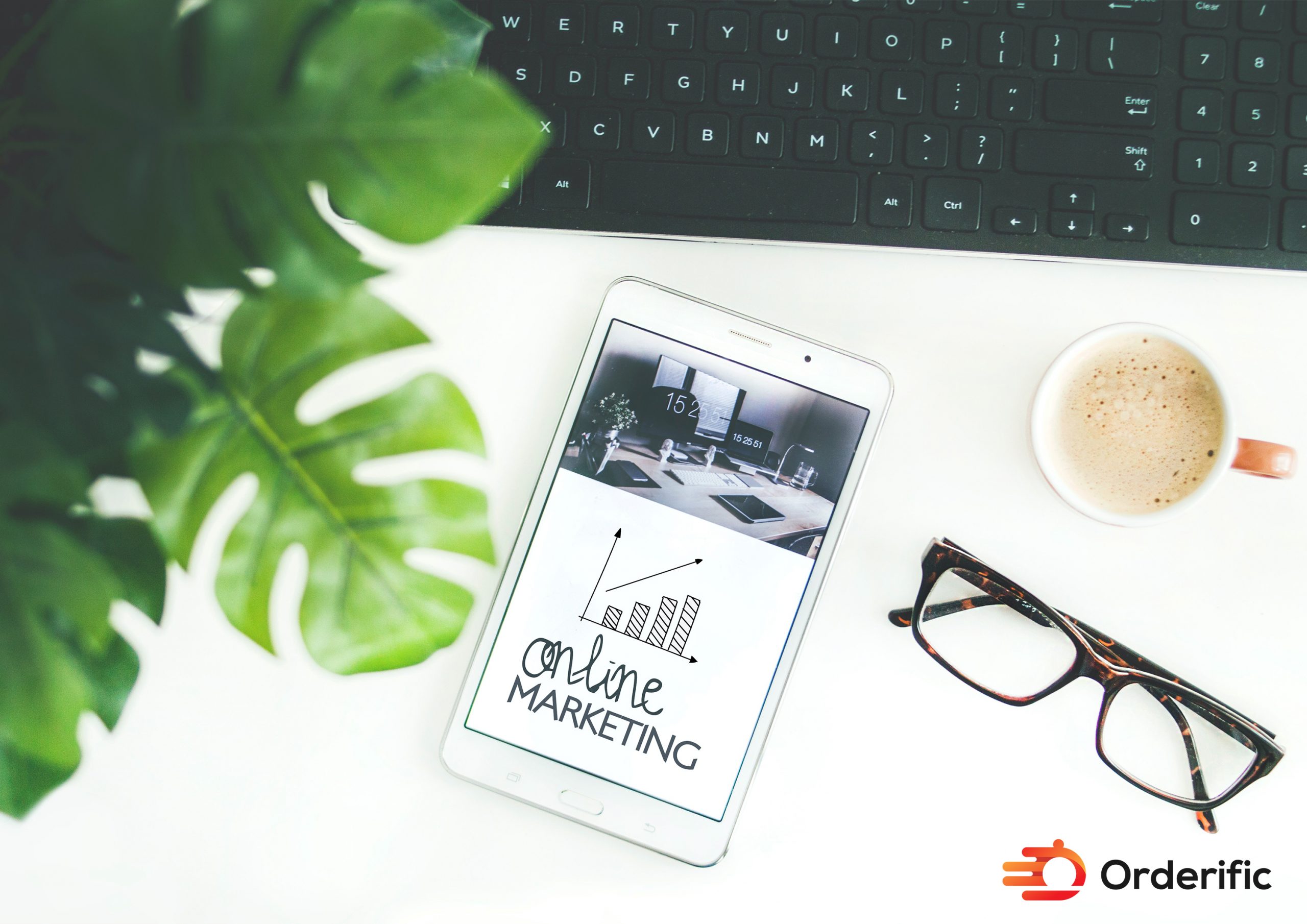Introduction
In today’s digital era, event marketing has evolved beyond traditional methods, harnessing the potential of innovative software to reach a broader target audience and boost ticket sales. This guide highlights critical event marketing strategies, employing social media and digital marketing techniques to enhance event promotion and planning. Using event marketing and event management software simplifies the process, making virtual events and event registration efficient and user-friendly. Whether you’re an event planner, event organizer, or event marketer, understanding and applying these event marketing strategies can aid in creating memorable experiences for attendees while maximizing your event’s success. From Webex events to other event technology tools, let’s delve into strategic event marketing.
What Is Event Marketing?
Event marketing is an incredibly dynamic and powerful strategy employed by businesses to promote their products, services, or events effectively. It encompasses tactics to directly engage with target audiences in various settings, such as live virtual events, webinars, or digital marketing campaigns.
The primary objective of event marketing is to create a highly immersive and interactive experience for attendees, allowing them to actively engage with the brand on a much deeper and more meaningful level. Event marketing plays a crucial role in building lasting relationships with the target audience while significantly boosting brand awareness and driving ticket sales by offering a more personalized and interactive approach.
In addition, event marketing goes beyond traditional advertising methods by providing a platform for businesses to showcase their offerings more experientially. This allows potential customers to gain firsthand experience with the product or service, fostering a stronger sense of trust and credibility. Moreover, the interactive nature of event marketing enables businesses to gather valuable insights and feedback from attendees, helping them refine their marketing strategies and better understand their target market.
Role Of Social Media In Event Marketing
Social media has completely transformed the event marketing landscape, providing event marketers with various innovative tools and strategies to captivate a broader target audience. Social media platforms such as Facebook, Twitter, and Instagram have become indispensable resources in an event marketer’s toolkit, enabling them to achieve unparalleled exposure and engagement.
For instance, Facebook events have emerged as a powerful platform for event promotion, allowing organizers to showcase key event details and foster interaction through likes, shares, and comments. This generates buzz and excitement and encourages attendees to spread the word to their networks, effectively expanding the event’s reach.
Similarly, Twitter’s real-time updates offer event marketers the perfect avenue to share live event highlights, enabling them to effectively communicate with attendees and those who couldn’t be present physically. By providing real-time updates on crucial moments, announcements, and behind-the-scenes glimpses, Twitter enhances the overall event experience and creates a sense of inclusivity for both attendees and virtual participants.
Event Marketing Software: A Game Changer
Event marketing software has revolutionized the event planning and management process, offering a wide range of benefits and features. These tools not only streamline event registration and ticket sales but also provide a centralized platform for all event-related tasks. With email marketing capabilities, social media integration, and event promotion tools, organizers can effectively reach and engage their target audience. Additionally, these software solutions offer robust analytics to track the success of marketing strategies and make data-driven decisions.
One noteworthy example of event marketing software is Webex Events. This versatile platform caters to both virtual events and webinars, offering a comprehensive suite of features for planning, promoting, and running successful events. With Webex Events, organizers can effortlessly create engaging virtual experiences, manage attendee registrations, and leverage powerful marketing tools to maximize event attendance and impact.
Perfecting Your Event Marketing Strategy
A comprehensive event marketing strategy is absolutely crucial to the success of any event. It involves meticulous planning and execution, with several key components that need to be addressed.
Firstly, identifying the target audience is essential. Understanding their demographics, interests, and preferences will help tailor the event to meet their needs and expectations. This could involve conducting market research, analyzing data, and gathering insights to gain a deeper understanding of the target audience.
Once the target audience is defined, the next step is determining the most effective ways to reach them. This could include utilizing various marketing channels such as social media, email campaigns, website promotions, and targeted advertising. The goal is to create a buzz and generate interest among the target audience, ensuring maximum event attendance.
Developing engaging content is another crucial aspect of the event marketing strategy. This includes creating compelling event descriptions, captivating visuals, and informative materials that resonate with the target audience. It’s important to communicate the value and unique selling points of the event, highlighting why attendees should choose to participate.
Furthermore, leveraging event technology can greatly enhance the attendee experience. Utilizing mobile apps, interactive platforms, and virtual reality experiences can create an immersive and memorable event environment. This not only enhances engagement but also provides valuable data and insights for future event planning.
The Importance Of Event Management
Effective event management is not only essential but also serves as the cornerstone of successful event marketing strategies. From meticulously planning every aspect of the event to flawlessly executing it and following up afterward, each element plays a significant role in the overall success. Utilizing advanced event management software can further streamline this process by offering a comprehensive suite of tools for efficient scheduling, precise budgeting, seamless attendee management, and meticulous logistics coordination. With the aid of such software, event planners can ensure smooth operations, exceptional attendee experiences, and ultimately, the achievement of event marketing objectives.
Creating Successful Virtual Events
In today’s digital landscape, virtual events have gained immense prominence. With their ability to provide an interactive platform, these events offer attendees from around the world unique opportunities for engagement and global reach. Whether it’s informative webinars or captivating live stream events, the success of virtual events hinges on a well-executed event marketing strategy, leveraging robust event technology, and delivering compelling and engaging content that resonates with the audience. By incorporating these elements, virtual events can create immersive experiences that leave a lasting impact on participants, fostering meaningful connections and driving desired outcomes.
Why Is Event Marketing Important For Small Businesses And Nonprofits?
Grow Your Email List
Utilizing event marketing strategies is a powerful way for small businesses and nonprofits to grow their email lists. An expansive email list is a valuable asset, offering a direct line of communication to potential customers, donors, or supporters. With every registration for a webinar, live event, or virtual meet-up, businesses and nonprofits acquire potential leads. These attendees have shown interest in what you offer, making them more likely to respond to future email communications. By offering valuable content or experiences through events, organizations encourage attendees to provide their email addresses during the registration process. This continual growth of the email list serves as a potent tool for fostering relationships, marketing future events, products, or services, and ultimately, driving conversions or fundraising efforts. Event marketing software aids this process, seamlessly integrating with email marketing platforms, capturing registrant information, and aiding in the strategic growth of your email marketing initiatives.
Generate Sales And Fundraising Dollars
Events are not just about fostering relationships and building brand awareness; they also serve as a valuable avenue to drive revenue. For small businesses, well-orchestrated events can generate sales both during and after the event. Live demonstrations, exclusive offers, and event-only discounts can incentivize immediate purchases, while the positive experiences and relationships cultivated at the event can lead to future sales. For nonprofits, events offer a unique opportunity to boost fundraising efforts. Charitable events, silent auctions, galas, or virtual fundraisers can engage supporters and provide a platform for donations. The use of event marketing software can further optimize these efforts, offering features like secure payment processing, ticketing systems, and real-time tracking of donations. Thus, strategic event marketing can translate into a direct impact on your bottom line, increasing sales for businesses and fundraising dollars for nonprofits.
Build Customer Relationships Through One-On-One Engagement
A strong customer relationship is the cornerstone of any successful business or organization. Event marketing offers a unique opportunity to foster these relationships by facilitating personal interaction. Regardless of whether the event is physical or virtual, it provides a platform for direct, one-on-one engagement with the target audience. Attendees have the opportunity to interact with the brand, ask questions, provide feedback, and receive personalized attention. This direct interaction not only strengthens the customer relationship but also builds trust and loyalty. Moreover, it provides valuable insights into customer behaviors and preferences, enabling businesses and nonprofits to tailor their offerings and marketing strategies to better meet their audience’s needs.
Event marketing software can further enhance these interactions by offering features such as live chat, Q&A, and polls during virtual events, making engagement more streamlined and interactive. In short, harnessing the power of event marketing for one-on-one engagement is a powerful strategy for building strong, lasting customer relationships.
Build Brand Awareness
Events, whether physical or virtual, serve as powerful platforms for building brand awareness. By hosting events that resonate with your target audience, businesses and nonprofits can effectively position themselves in the minds of potential customers or donors. These events provide an opportunity to showcase your brand’s personality, values, and offerings in an engaging and interactive way. Well-executed events create memorable experiences that attendees associate with your brand, increasing brand recall and recognition. They also offer a platform for attendees to interact with the brand on a personal level, making a lasting impression and fostering a sense of loyalty. Furthermore, the buzz created around events through social media promotion, email campaigns, and word-of-mouth can significantly extend the reach of your brand awareness efforts.
Event marketing software can further amplify this impact by facilitating seamless event promotion, attendee engagement, and post-event follow-up, ensuring that your brand remains top of mind long after the event concludes. In essence, strategic event marketing is a highly effective tool in building and enhancing brand awareness.
Different Types Of Event Marketing
Events For Building Awareness And Loyalty
Building awareness and loyalty are essential components of a successful event marketing strategy, and certain types of events are specifically designed to foster these elements. These events can range from product launches and grand openings to webinars and virtual meet-ups, each aiming to promote the brand’s visibility and cultivate a loyal customer base.
Product launches and grand openings are prime examples of events that create a buzz around a new offering or milestone, thereby heightening brand awareness. These events provide an opportunity for businesses to showcase their products or services, demonstrate their value, and establish a positive brand image in the minds of attendees.
Webinars and virtual meet-ups, on the other hand, offer a platform for brands to share expertise, provide value, and engage with their audience on a more personal level. These events foster a sense of community around the brand, thereby building customer loyalty. The interactive nature of such events allows for real-time engagement, personalized interaction, and the opportunity to address customers’ needs and queries directly.
In both types of events, the utilization of event marketing software can significantly enhance their effectiveness. Such tools can streamline registration, facilitate engagement during the event, and provide valuable analytics for post-event evaluation. By strategically using these events as part of their marketing plan, businesses can effectively build brand awareness and loyalty, thereby bolstering their customer relationships and driving long-term success.
Educational Seminars, Workshops, And Events
Educational seminars, workshops, and events serve as vital platforms for businesses to exhibit their industry expertise, impart valuable knowledge, and engage directly with their target audience. Seminars, both online and offline, provide a forum to discuss industry trends, present original research, or simply educate attendees about specific topics of interest. Workshops, on the other hand, offer a more hands-on learning experience. They allow participants to acquire new skills or knowledge in a practical, interactive manner. These educational events, while imparting value, also subtly introduce the brand’s own products or services and how they can solve the audience’s problems or meet their needs. The use of event marketing software in organizing these events can offer several advantages, from easy registration processes to interactive Q&A sessions and feedback collection.
In short, educational seminars, workshops, and events, when executed effectively, can elevate a brand’s reputation, reinforce its position as an industry leader, and foster a deeper connection with the target audience.
Conference And Event Marketing
Conferences, both physical and virtual, are an integral part of event marketing. They serve as platforms for businesses to connect with their industry peers, showcase their offerings, and gain insights into the latest trends. Conferences provide an opportunity to network, learn, and engage with a broad audience, establishing the brand as a key player in its industry. They often feature keynotes from industry experts, panel discussions, and breakout sessions, offering diverse learning and networking opportunities.
On the other hand, event marketing primarily focuses on promoting an event to a target audience with the aim of driving ticket sales and creating a successful event experience. It involves a plethora of activities from creating a compelling event page, leveraging social media, to deploying email marketing campaigns. These marketing efforts focus on highlighting the event’s unique selling points and the value it offers to attendees.
Using event marketing software can simplify and optimize both conference management and event marketing processes. It provides tools for easy ticketing, hassle-free registration, attendee management, and insightful analytics which are essential for the successful planning and execution of these events.
Nonprofit Events
Nonprofit events are critical components of a nonprofit organization’s fundraising and awareness initiatives. These events, which can range from charity runs and gala dinners to virtual fundraisers and silent auctions, serve multiple purposes. They not only raise vital funds to support the organization’s mission but also help to increase awareness about the cause, engage supporters, and attract new donors.
Moreover, nonprofit events provide an opportunity for organizations to showcase their impact, demonstrate their commitment to their cause, and foster a stronger connection with their supporters. The use of event marketing software can significantly enhance the planning and execution of nonprofit events. Its functionalities like secure payment processing, real-time tracking of donations, and seamless integration with marketing platforms make it an invaluable tool in executing successful nonprofit events. In essence, nonprofit events, when strategically planned and effectively executed, can significantly contribute to a nonprofit organization’s fundraising success and overall mission achievement.
Pop-Up Shop Events
Pop-up shop events are temporary retail spaces that give businesses the opportunity to sell their products in a physical environment. This type of event is highly effective in generating buzz as it creates a sense of urgency among the target audience due to its limited duration. For small businesses and online retailers, pop-up shops provide a cost-effective way to test new markets, gain customer feedback, and increase brand awareness. For nonprofits, they serve as a unique fundraising channel, selling products or merchandise related to their cause. They also provide a tangible connection to supporters, allowing them to directly contribute to the organization’s mission.
Utilizing event marketing software can streamline the planning and execution of pop-up shop events, with features such as inventory management, sales tracking, and data analytics. Therefore, pop-up shops represent a dynamic form of event marketing that combines the experiential aspects of physical retail with the immediacy and efficiency of e-commerce.
Event Marketing Planning (Aka “How To Do Event Marketing”)

1. Share Your Event With The Media
Sharing your event with the media is an effective way to increase its visibility and reach. It involves strategically communicating with various media outlets, including local newspapers, radio stations, television networks, and relevant online platforms. Crafting a compelling press release that highlights the unique aspects of your event can capture the media’s attention and spark their interest in covering your event. It’s essential to include key details such as the event’s purpose, date, location, and key attractions, as well as a compelling story or angle that sets your event apart. Furthermore, personalized outreach to journalists and influencers who cover similar events or industries can result in additional press coverage. Social media can also play a crucial role in engaging with the media. Regularly posting updates about the event, creating event-specific hashtags, and tagging relevant media outlets can further boost visibility.
The use of event marketing software can help track the effectiveness of these efforts, offering insights into which channels drive the most attention and engagement. In sum, leveraging the media’s reach can significantly amplify your event marketing efforts, driving awareness, boosting ticket sales, and enhancing the overall success of your event.
2. Socialize
Socializing your event is a critical component of event marketing. This strategy leverages the power of social media to spread the word about your event, engage with your target audience, and create a buzz that drives ticket sales. Platforms such as Facebook, Twitter, and Instagram allow you to create event pages, post updates, run targeted ads, and interact with potential attendees. They also facilitate user-generated content, such as shares, likes, and comments, which can significantly increase your event’s visibility. LinkedIn, on the other hand, is particularly effective for promoting professional and industry-related events. Interactive features like live videos, polls, and contests can further increase engagement, while hashtags can broaden your reach and make your event easily discoverable.
Remember to tailor your messages to the unique features and audience of each platform for maximum impact. Event marketing software can provide valuable analytics to measure the success of your social media efforts, helping to refine your strategy for future events. In essence, socializing your event can significantly enhance your event’s reach, engagement, and success.
3. Create A Landing Page Or Dedicate Pop-Ups
Creating a dedicated landing page or using pop-ups for your event is a strategic move that can significantly boost your ticket sales. A landing page, distinct from your website’s other pages, serves as a focal point where potential attendees can learn about your event, see its value, and ultimately make the decision to attend. It should include key details such as date, venue, agenda, speaker lineup, testimonials, and a prominent call-to-action for ticket purchase. Ensure it’s SEO-optimized using your primary keywords to attract organic traffic. On the other hand, pop-ups are a great way to grab attention and promote your event to website visitors. These can be set to appear at specific triggers – for instance, when a visitor first lands, is about to exit, or has spent a certain amount of time on the site. Pop-ups should be visually appealing, concise, and feature a clear call-to-action.
Both landing pages and pop-ups benefit from integration with event marketing software, which can help manage registrations, process payments, and provide valuable data for analytics. In essence, a well-designed landing page or pop-up can act as a powerful event marketing tool to increase awareness, engagement, and ticket sales.
4. Market Your Event Using Email
Email marketing remains a powerful tool in the event marketer’s toolkit, offering a direct line of communication to your target audience. A well-crafted email campaign can elevate awareness about your event, boost ticket sales, and keep attendees informed and engaged before, during, and after the event. Start by sending a ‘save the date’ email, followed by regular updates highlighting compelling aspects of your event, such as keynote speakers, unique experiences, and testimonials from past participants. Make sure each email includes a clear call-to-action driving recipients to your event’s registration page. Closer to the event, send out practical information like the event itinerary, venue details, and reminders to heighten anticipation. Post-event, consider a thank you email, potentially alongside a feedback survey.
Event marketing software can play a pivotal role in managing email campaigns, offering features such as customizable templates, audience segmentation, tracking of open and click-through rates, and integration with registration and ticketing systems. In essence, an effective email marketing strategy is key to maximizing your event’s success.
5. Spark FOMO (Fear Of Missing Out)
FOMO, or Fear Of Missing Out, is a powerful psychological trigger that event marketers can leverage to boost their event’s appeal and drive ticket sales. The key to sparking FOMO is to create a perception of exclusivity and urgency around your event. Start by highlighting the unique, one-time experiences, or opportunities that attendees will gain from your event, like the chance to hear from industry leaders, access exclusive content, or network with like-minded peers. Sharing testimonials or past experiences from previous events can also stir anticipation. Use countdown timers on your event page and in emails to remind potential attendees of the ticking clock. Social media can be invaluable in creating a FOMO effect. Encourage attendees to share their event experiences in real-time with a unique event hashtag, providing a window into the event for those not in attendance.
Remember to showcase your sell-out history and emphasize if tickets are selling fast, underscoring the high demand for your event. Utilizing event marketing software can help track the effectiveness of these FOMO strategies, providing data-driven insights into attendee behavior and ticket sales. In essence, sparking FOMO can be a potent tool in your event marketing strategy, enhancing engagement, driving ticket sales, and ultimately contributing to a successful event.
6. Promise A Good Time (And Deliver!)
Promising an enjoyable experience and delivering on that promise is a fundamental aspect of event marketing. Attendees are not just interested in the event itself, but in the overall experience – from the interaction before the event to the follow-up afterwards. Building anticipation for a great experience begins with the event marketing campaign. Highlight the unique elements of your event, showcase engaging speakers, exciting content, or exclusive opportunities. Use vivid imagery and compelling descriptions to paint a picture of the excitement attendees can expect. However, the promise is only half the equation. Ensuring the delivery of a memorable event experience is equally, if not more, important. This involves meticulous planning and effective execution – attention to detail in every aspect of the event, from registration to venue layout, from speaker management to post-event follow-up.
Utilize event marketing software to manage these processes, ensuring a smooth experience for attendees at every touchpoint. When you promise a good time and deliver, you not only create a successful event but also build a loyal audience for future events.
Measuring Your Event’s Success
Use KPIs To Evaluate SMART Goals
Setting SMART goals and using Key Performance Indicators (KPIs) is crucial for measuring the success of your event. These metrics help you to objectively assess performance, identify areas for improvement, and inform strategic decisions for future events. KPIs may include ticket sales, attendee satisfaction, social media engagement, and more.
Post-Event Surveys
Conducting post-event surveys is a significant part of measuring your event’s success. These surveys directly capture attendees’ experiences and perceptions, providing valuable insights that can help refine future events. You can get feedback on various aspects like venue, content, organization, speakers, among others.
Evaluate Attendance And Engagement Rate
Evaluating attendance and engagement rates provides a quantifiable measure of your event’s success. Attendance rates are direct indicators of interest and the effectiveness of your marketing efforts, while engagement rates, including social media interactions, session participation, and networking activity, gauge the value attendees derived from your event.
Social Media Engagements
Assessing social media engagement is an effective way to gauge the success of your event. This includes monitoring likes, shares, comments, and mentions related to your event. High engagement signifies a well-received event and helps identify what resonated most with attendees.
Conclusion
In conclusion, implementing strategic event marketing strategies using software can significantly enhance your event’s success. From sharing your event with the media, socializing, creating a dedicated landing page, utilizing email marketing, to sparking FOMO and promising a good time, each of these strategies plays a crucial role in driving awareness, engaging your target audience, and boosting ticket sales. Moreover, measuring the success of your event through KPIs, post-event surveys, evaluating attendance and engagement rates, and assessing social media engagements is imperative for future improvements. Embrace these strategies to elevate your events and create memorable experiences that resonate with your audience. If you’re interested in harnessing the power of event marketing software to optimize your events, Book a demo with Orderific and explore how our solutions can revolutionize your event marketing efforts.
FAQs
Why is event marketing important, and what value does it bring to the success of an event?
Event marketing is important as it drives awareness, engagement, and ticket sales, ultimately contributing to an event’s success.
How can event organizers utilize digital channels and social media in their marketing efforts?
Event organizers can use digital channels and social media to increase their event’s visibility, engage with their audience, and drive ticket sales.
Are there specific tools or technologies that enhance the efficiency of event marketing campaigns?
Yes, event marketing software greatly enhances the efficiency and effectiveness of event marketing campaigns.
What role does storytelling play in creating compelling event marketing messages and content?
Storytelling plays a crucial role in creating compelling event marketing content by building an emotional connection and making messages more memorable.













